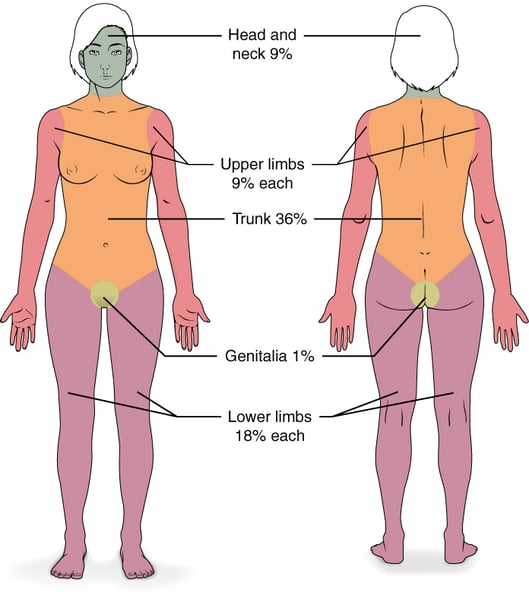2 min read
Keep the Fire on the Grill - Summer BBQ Safety
![]() Cecile Garcia, Operations Manager
:
Jul 3, 2019 2:15:21 PM
Cecile Garcia, Operations Manager
:
Jul 3, 2019 2:15:21 PM
With summer well on its way, many folks are excited for the season’s go-to meal - barbecue. Whether you operate an open pit at a large event or simply fire up your backyard grill for your friends and family, you should keep certain precautions in mind - for the safety of you and your guests.
Practice Preventative Fire Safety
Remember basic fire safety. Make sure that the cooking area is contained in a controlled area.
If you are in charge of safety for a large-scale event with barbecues, cooking stations, or pig roasters, make sure that fire regulations are being met and that the event is permitted. Create an environment where cooking surfaces are only accessible to those preparing food so that the general public does not run the risk of hurting themselves. Especially protect the area from being accessed by children or people on oxygen. If there are generators for the event, do not place them near cooking areas. Do not leave the cooking area unattended.
Before you build a campfire, check to make sure you are allowed to do so in your area and obtain any burn permits beforehand. Clear any brush away from the area where you are building a fire so that the fire does not spread. Do not use plastic cooking utensils.
Burns
If someone catches on fire, remember what you learned in school: stop, drop, and roll. Contain and subdue the fire as best as you can. Call 911.
In treating burns, practice the Wallace rule of nines to quickly assess how much a burn is covering the body. This information is helpful to EMTs in determining treatment. See the chart below from the National Institutes of Health (NIH).
 For first degree (red skin) and second degree (red, thick skin and blisters) burns, flush them with cool water and put pressure on. Add ice. Call 911 for a second degree burn or transport the patient if it is contained to a small area (such as a hand).
For first degree (red skin) and second degree (red, thick skin and blisters) burns, flush them with cool water and put pressure on. Add ice. Call 911 for a second degree burn or transport the patient if it is contained to a small area (such as a hand).
For third degree burns (charring, white and waxy skin, thick skin, and/or blisters), replenish the patient with fluids since they may go into shock due to dehydration. Call 911. Do not rub ointment into the burn or flush with cool water. You may cover it with a sterile bandage to prevent infection.
Smoke Inhalation
Smoke inhalation can also occur when people cook barbecue. Signs of smoke inhalation include soot around the mouth and nose, dry coughing, and wheezing sounds in the lungs. Call 911 immediately for smoke inhalation. Patients will need oxygen.
Carbon Monoxide Poisoning
Barbecuing in enclosed areas may cause carbon monoxide poisoning. Carbon monoxide is odorless and tasteless so use a portable detector to monitor the cooking area to alert your chefs if the levels ascend. If someone presents with a dull headache, weakness, or dizziness, they may be suffering from carbon monoxide poisoning. Blood tests can be administered in the field to determine if they are. The patient may pass out. Call 911 to transport the patient to a hyperbaric chamber - much like the bends, carbon monoxide poisoning starves the body of oxygen.
Food Preparation
Another aspect of barbecuing to remember - food safety. Avoid cross-contamination - especially with pork and chicken. Keep raw pork and chicken away from shared surfaces or other foods to prevent the spread of salmonella and E.coli. Foods that are common allergens (such as nuts or shellfish) should also be cooked separately. Keep hand sanitizer close by to avoid cross-contamination.
Keep meat at the correct temperature. Do not undercook or overcook meat. Do not leave raw meat out in the sun. Bring a meat thermometer to determine when the meat is cooked well enough to serve.
With all these tips, it may feel like your event is a danger zone. If you take the right measures, your guests will only need to worry about how much food they can fit on their plates. Happy eating!

